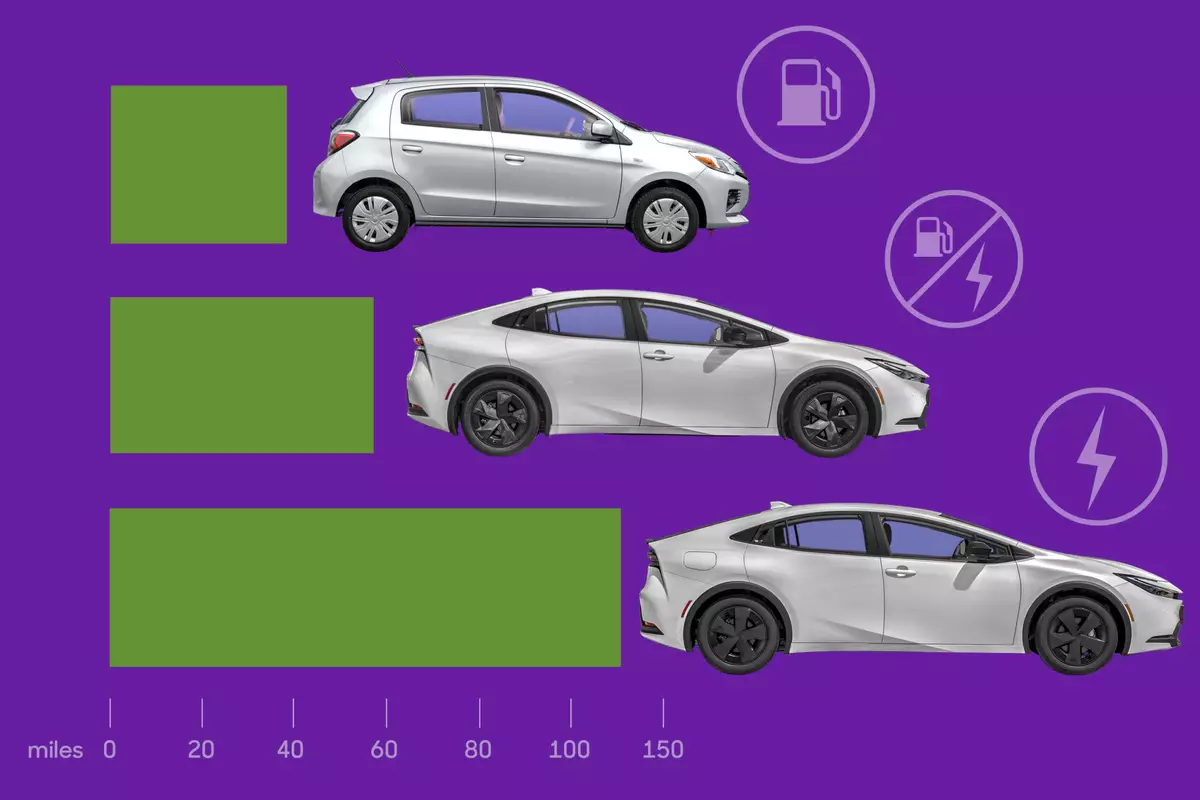Shop At Haya: Your Ultimate Shopping Guide
Discover the best shopping tips, trends, and deals for a smarter buying experience.
Fuel Efficiency: The Silent Revolution on Wheels
Discover the groundbreaking innovations in fuel efficiency transforming your drive. Join the silent revolution on wheels today!
5 Ways to Enhance Your Vehicle's Fuel Efficiency
Improving your vehicle's fuel efficiency is not only beneficial for your wallet but also for the environment. Here are 5 ways to enhance your vehicle's fuel efficiency:
- Regular Maintenance: Keeping your vehicle properly maintained is crucial. Regular oil changes, air filter replacements, and spark plug checks ensure that your engine runs smoothly and efficiently.
- Tire Maintenance: Maintaining the correct tire pressure can significantly impact your fuel efficiency. Under-inflated tires create more rolling resistance, which can decrease gas mileage. Check your tire pressure frequently and align your tires when necessary.
Furthermore, your driving habits play a vital role in how efficiently your vehicle uses fuel. Adopting smoother driving techniques, such as gradual acceleration and braking, can help maximize your fuel economy.
- Reduce Excess Weight: Remove unnecessary items from your vehicle. Carrying extra weight requires more fuel and reduces overall efficiency.
- Limit Idling: If you’re parked or waiting for someone, turn off the engine. Idling consumes fuel unnecessarily and can be avoided.

The Science Behind Fuel Efficiency: How It Works
Understanding the science behind fuel efficiency begins with the interplay of various factors that affect how well a vehicle converts fuel into motion. Essentially, fuel efficiency is measured in terms of miles per gallon (MPG) or liters per 100 kilometers (L/100km), which represents the distance a vehicle can travel on a specific amount of fuel. Several elements contribute to this efficiency, including engine design, vehicle weight, aerodynamics, and tire performance. For instance, lighter vehicles generally require less energy to move, while streamlined designs reduce air resistance, allowing for smoother travel and better fuel economy.
Moreover, fuel efficiency is also significantly influenced by driving habits and conditions. Factors such as rapid acceleration, excessive idling, and frequent stops can lower overall fuel efficiency. Engaging in practices such as maintaining a steady speed, reducing unnecessary weight, and ensuring proper tire alignment can help maximize MPG. Additionally, advancements in technology like hybrid engines and turbocharged motors are continually reshaping how we approach fuel efficiency, making it a critical consideration for both environmental sustainability and cost-effective driving.
Is Fuel Efficiency the Future of Sustainable Transportation?
The quest for sustainable transportation has gained unprecedented momentum in recent years, with fuel efficiency emerging as a crucial factor in this transformation. As governments, environmental organizations, and consumers increasingly prioritize reducing carbon footprints, fuel-efficient vehicles are positioned to play a pivotal role in combating climate change. By optimizing the engine performance and employing innovative technologies such as hybrid systems and advanced aerodynamics, manufacturers are creating vehicles that not only consume less fuel but also emit fewer greenhouse gases. This shift towards improved fuel efficiency is essential for achieving a sustainable future.
Moreover, the implications of focusing on fuel efficiency extend beyond individual vehicles. A comprehensive approach involves enhancing public transportation systems, promoting carpooling, and supporting the development of alternative fuels. Cities that prioritize fuel-efficient infrastructure can significantly reduce congestion and pollution. As the world shifts toward electric and hydrogen-powered vehicles, the concept of fuel efficiency will continue to evolve. Ultimately, a commitment to sustainable transportation that emphasizes fuel efficiency could revolutionize how we move and interact with our environment, leading to cleaner air and healthier communities.